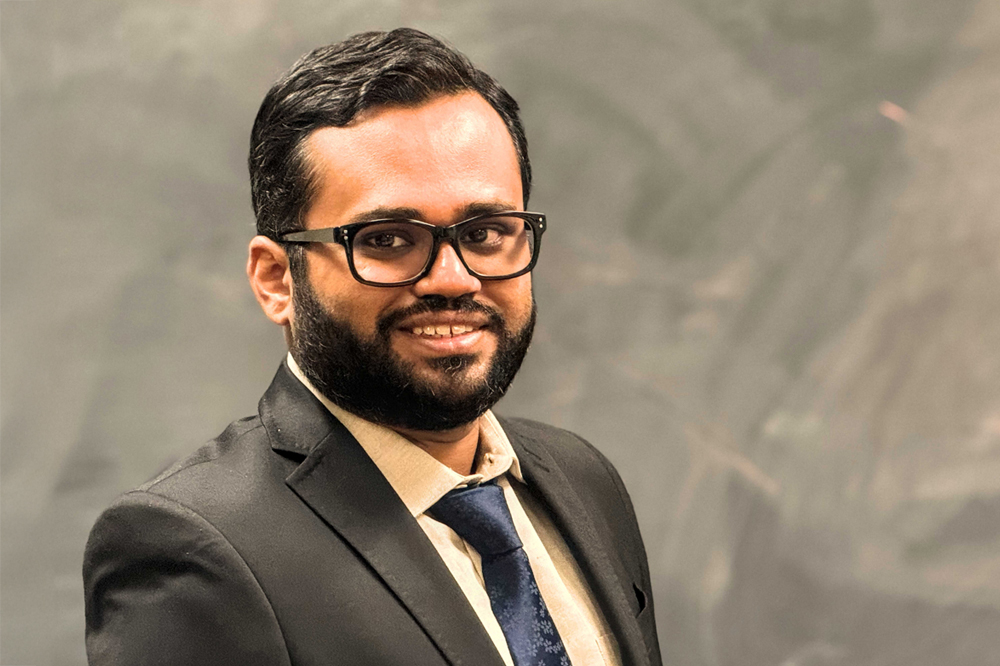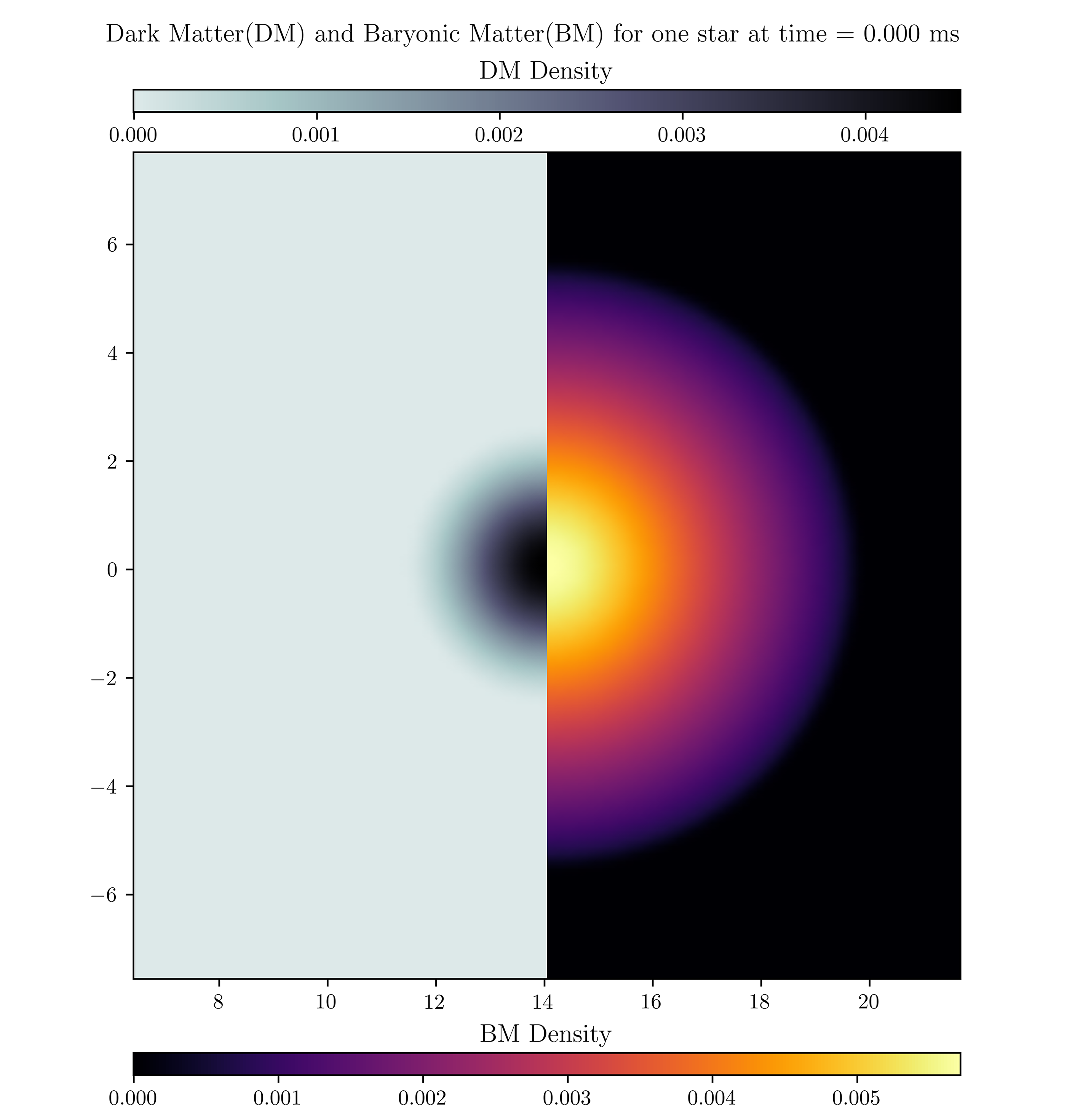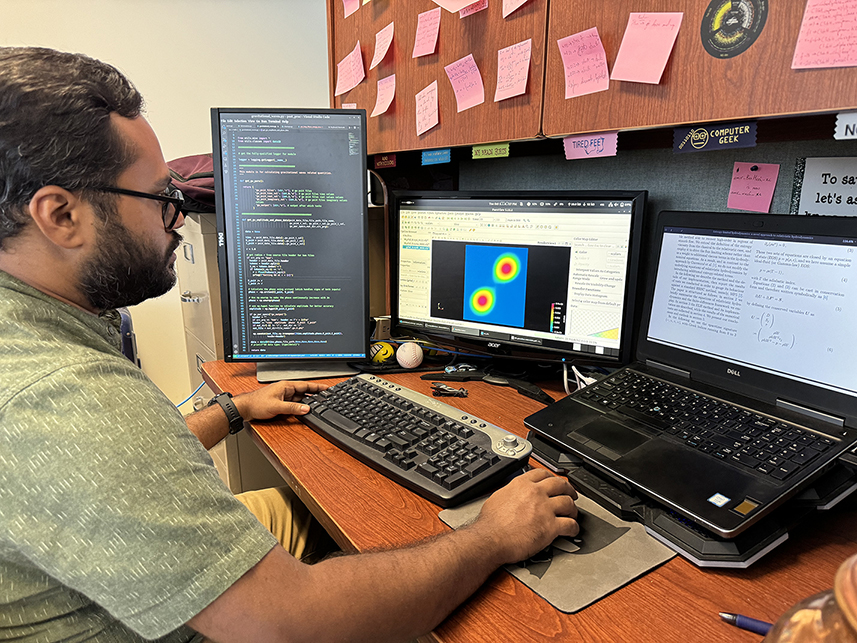Ph.D. Student Spotlight: Ananya Adhikari Department of Physics
Monday, Nov 04, 2024
Alumnus Ananya Adhikari is currently working toward his second Florida Atlantic degree as a Ph.D. student in the Department of Physics. He received his master’s degree in physics in 2018 through the Graduate College’s Master’s en Passant (“along the way”) program while working on his doctorate.
Q: Why did you choose to pursue a degree in science from Florida Atlantic?
A: The Schmidt College of Science’s Physics Department has one of the strongest research groups on loop quantum gravity. I was aspiring to study quantum gravity at the end of my master’s program in India, and Florida Atlantic was a lucrative option to me. However, I have since changed my field of research, owing to the current burgeoning epoch of gravitational wave physics and multimessenger astrophysics.
Q: What attracted you to study the field of physics?
A: Very early in my childhood, I got a peek at the night sky through an amateur astronomer telescope of a friend’s father. Even though we could mainly see the moon’s craters and barely see Jupiter, it was enough to captivate my interest and imagination. The possibilities of the numerous mesmerizing mysteries in the vast expanse of the universe, all waiting to be discovered, were exhilarating.
Like many children, I wanted to be an astronaut when I grew up. At that young age, it seemed that if I could go up there, I would learn everything there is to be learned about space. However, as I grew up, I realized that I was more interested in understanding the fundamental nature of the universe and underlying fundamental laws than just observing all the cosmic bodies out there. As such, physics became the obvious path for me to take.
Q: Do you have a faculty mentor in the College of Science?
A: Yes, I am working on my doctoral thesis under the supervision of Professor Wolfgang Tichy, Ph.D. While I was familiar with Einstein’s theory of general relativity when I joined Florida Atlantic, I was a novice when it came to computational general relativity, gravitational wave physics and multimessenger astrophysics – which are whole research areas by themselves – and they are also the focus of my current research projects. Dr. Tichy introduced me to these areas and helped strengthen my knowledge and understanding throughout my Ph.D. program.
For my research, I have worked with him primarily on the computational general relativity package called Nmesh, which he is developing here at Florida Atlantic. Furthermore, he has also facilitated and encouraged me to work on other projects with his collaborators in Germany and broadening my exposure to the computational relativity community. It has been an absolute pleasure working with him on these projects and learning from his vast experience and knowledge to find my path in research.
Q: What is the focus of your dissertation?
A: My dissertation spans the topics of computational general relativity, gravitational wave physics, and multimessenger astrophysics, focusing on the relativistic simulation of compact objects, principally on neutron stars.
The historic first observation of gravitational waves by LIGO and Virgo in 2015 opened a new window for us to study the universe. Then, the 2017 observation of a binary neutron star merger across multiple spectra ushered in the current epoch of multimessenger astrophysics. Given this, I am working on simulating neutron stars with three objectives: improving the accuracy and efficiency of the simulating program, exploring new physics and neutron star configurations, and investigating gravitational wave observation events through tailored simulations.
Adhikari is the recipient of several awards, including the Bjorn Lamborn Scholarship in Physics in 2024, the Dr. John Samuel Faulkner Award in 2023, and the Provost’s Fellowship in 2017.